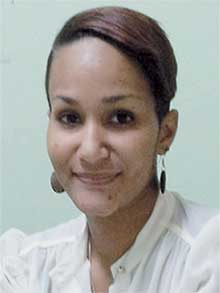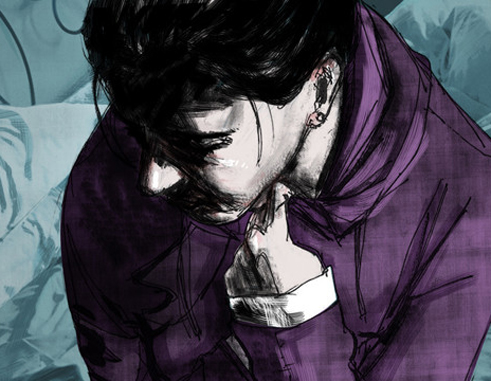
IN this week’s article we will continue using the material from the book, ‘The Courage To Heal: A Guide for Women Survivors of Child Sexual Abuse by Ellen Bass & Laura Davis as the foundation. For the past three articles we have looked at ways in which the brain and body take over in many ways to protect victims/survivors from what is currently happening to them or to protect them from the memories of what has happened to them. In this week’s article, we will focus on ways in which we use addictions, compulsive behaviours and self-destructive behaviours to cope, to regain some control. As previously mentioned, there are specific parts of this article that may resonate with you more than others. The past few articles have explored ways in which many of us as survivors of sexual violence, but also survivors of various things try to cope. This article will delve into the ways in which we try to take control and cope on our own. The information provided is in no way meant to make you, if you are a survivor yourself, feel uncomfortable or judged, only to educate, validate and hopefully help you understand a bit more about why you may have reacted/ or are reacting in certain ways. Please remember that coping has allowed you to survive a traumatic experience/experiences. Coping is what has helped you get through every day and what is continuing to help you get through each day. It is important that you understand that we all cope in different ways at different times. The information presented in the article below may connect with you in some way or bring back unwanted, unpleasant memories which may make it difficult to read the entire article. If you feel Triggered at any point, please put the article down, there is no need to push yourself to try and get through it all in one reading, you may need to take a break, or to stop reading it all together. Always trust your feelings, be gentle with yourself, take your time. Baby steps.
As a victim/survivor of sexual violence choice was taken from you. From the moment you experienced the traumatic experience, you may have felt out of control. You may have felt like those around you kept deciding what you needed, what was best for you, what you should be doing etc. You may have felt that no one included you in the ‘what should happen next’ conversation. When this happens most survivors/victims feel even less in control of their lives. They have lived through a traumatic experience and had their control taken away from them in that instant, only to turn around after and have the same thing done to them repeatedly. Finding ways to cope and continue to go on in spite of everything takes strength and courage. Acknowledge how far you’ve come. And while these are articles are geared towards survivors of sexual violence, we are all survivors of something traumatic, in many ways we can all relate to something found in the articles. The way in which you chose to cope is/was your decision. Work on figuring out which of your coping mechanisms are healthy and which require you do some work to change them.
This week’s article focuses on addictions to drugs and alcohol, sexual addictions and eating disorders. The three types of coping mechanisms above have been used to help victims/survivors feel some control over their lives, it has aided in helping to hide or ignore painful intrusive memories, feelings and thoughts. They have allowed us to disguise what is currently affecting us, to mask/numb the pain, to block out the memories, to feel loved if only for a moment, to feel nothing if only for a few hours. Survivors of traumatic experiences may find the use of alcohol or drugs helpful in getting through the day, in helping to sleep, in helping to feel less pain, in helping to forget. While the use of drugs and alcohol to cope can be helpful as a coping mechanism, also be mindful that you may become dependent on it, making you addicted to it. As survivors of sexual violence, our relationship with sexual intimacy can be a difficult one, you may find that you are engaging in more intimate sexual relationships than before, that you rate how much a partner likes you depending on how quickly you get intimate, you may find that you engage in more risky sexual relationships. Some survivors find that they prefer a partner who isn’t interested in a sexual relationship with them. As survivors of sexual violence your relationship with sexual intimacy, can understandably be confusing, angering, anxious, numb, passionate, exciting, fearful, enjoyable etc. Understanding your relationship with sexual intimacy will help you figure out what works best for you and those you enter sexual relationships with. Sexual violence is undeniably linked to how you feel and react in your sexual relationships after, no one in any position to dictate how you heal, how you cope or how you move forward, but you need to understand how you have been impacted and how your choice of coping is working for you. Lastly, we will look at eating disorders, anorexia and bulimia. Some survivors have found that by controlling what they eat, when they eat, how their bodies develop, they feel more in control. Some survivors find that food comforts them, some think that if they eat and become overweight that the abuse will stop or that it will never happen again. Some survivors believe that if they stop eating they can disappear, some believe that they are broken and don’t deserve to be nourished. The coping mechanisms we have discussed in this article are addictions, and as such fall into the unhealthy bracket. Addictions while they may help you cope momentarily can also work to be a controlling factor in your life, making you feel more out of control the more dependent you become on the addiction. Again, we are not here to judge you, as survivors we have all battled with more than one of these coping mechanisms being discussed. The continued goal is to help you understand where you are on your healing journey, to help you to start figuring out how you have been affected, which methods of coping are healthy and which ones still need to work to begin replacing them. I understand that this will take time. The first step is taking the time to understand where you are, to be honest with yourself. Own the fact that you have been coping in whatever way you have chosen because it has worked for you, but also question whether you take another step, whether your coping methods truly work for you or are you holding on to them because they are safe? I know none of this is easy, and I am not asking you to push or rush anything. Take your time, take the baby steps when you are ready, one step at a time.
I wanted to mention that if you are using any of the coping mechanisms we have discussed in this article, that it may be your way of trying to regain control. There is nothing wrong with you. Understanding how you have been affected will help you feel a bit more in control as you begin to or continue to heal. We are not here to judge any of you for how you chose to cope. We are here to hopefully educate and validate what you are feeling, what you are going through and how you are dealing with It on a daily basis. Each of us copes in the best way we know how. Each of us is doing what we can to get through the day, to get out of bed. “Coping is what you did to survive the trauma of being sexually abused. And it is what you do now to make it through each day.”
Next week we will look at a few more. Should there be a specific topic you would like us to cover, or a question you would like answered, please feel free to reach out to us.
Survivors of sexual assault need a supportive environment to begin the healing process. They need to believe and feel that they are part of a culture that doesn’t support individuals who commit sexual crimes. We have to be the difference we want to see in our country. We have to be willing to start to make change. We, at PROSAF, have acknowledged that violence against women is a problem in St. Lucia and the wider Caribbean. We are here to begin the metamorphosis that is desperately needed. We are always here to listen and if you are not ready to come forward but need a listening ear, feel free to contact us. Remember that sexual assault is something that happens to people, it does not define them, it is something that was done to them. Survivors and victims are not guilty of any crime. Always remember that you are not alone, that you have nothing to be ashamed of. We are taking the baby steps necessary to make it better for all.





![Simón Bolívar - Liberator of the Americas [Photo credit: Venezuelan Embassy]](https://thevoiceslu.com/wp-content/uploads/2025/12/Simon-Bolivar-feat-2-380x250.jpg)



